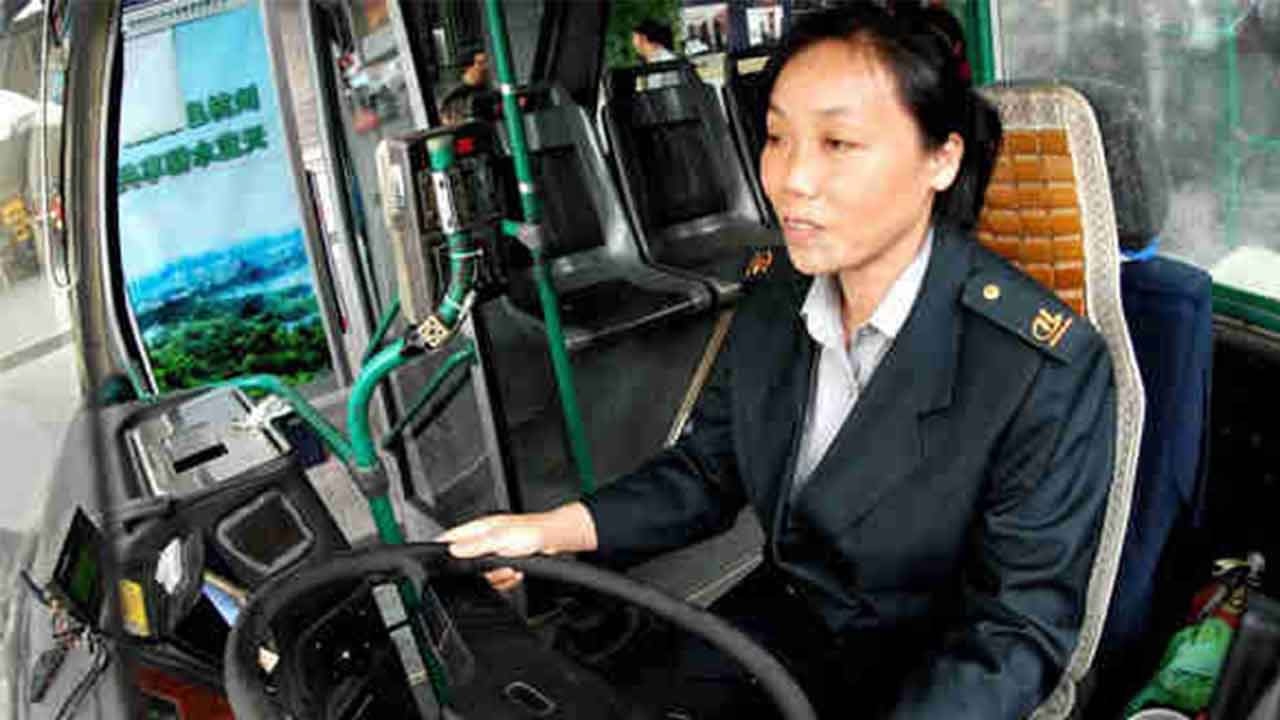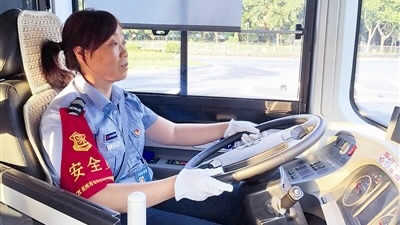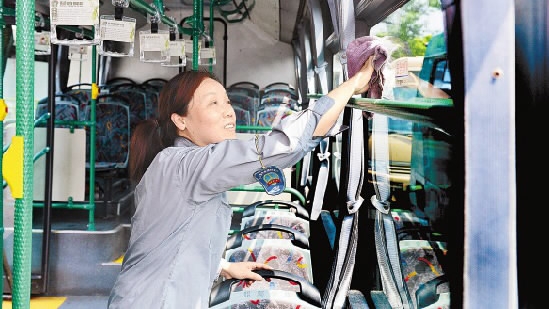
China
15:20, 11-Mar-2017
A day in the life of an NPC deputy
Updated
11:01, 28-Jun-2018

By CGTN's Han Peng
CGTN's reporter Han Peng followed a National People's Congress (NPC) deputy for a whole day to get a better understanding of China's ultimate decision-making process.
8 a.m.
NPC deputy Yu Chun starts preparing her speech.
She has just retired after 30 years’ service working as bus driver in the eastern Chinese city of Hangzhou.

NPC Deputy Yu Chun worked as a bus driver for 30 years. /CGTN Photo
NPC Deputy Yu Chun worked as a bus driver for 30 years. /CGTN Photo
In her hometown, passengers no longer need to use cash for their bus fares - they can simply pay through their unique QR codes on their mobile phones.
Yu says: "This year, I will propose to the National People's Congress to start building a 'cash-free country', by making mobile payments available in all businesses and places, just like on the buses in Hangzhou."
Mobile payment apps, such as Alipay and WeChat, have really grown in popularity across the country since the end of 2014.

A passenger pays for a bus ticket with her smartphone via a QR code. /CGTN Photo
A passenger pays for a bus ticket with her smartphone via a QR code. /CGTN Photo
8:30 a.m.
Yu makes her way to an NPC panel discussion. She has spent years doing field research and continues to do so even as she is walking to the meeting room.
She tries to buy some souvenirs in her hotel lobby with her mobile payment app, but is declined.
After discussing this limitation with the hotel, Yu says that like many other shops, they are reluctant to offer this convenient payment method, because of fears over the security of transfers.
"We must improve mobile payment security to really build a 'cash-free country'," says Yu.
9:00 a.m. - 12:30 p.m.
The panel discussion begins.
Yu grabs her chance to speak. Her primary purpose is to get her proposal included in the government work report.

Deputy Yu Chun cleans the bus window on a typical working day. /CGTN Photo
Deputy Yu Chun cleans the bus window on a typical working day. /CGTN Photo
Premier Li Keqiang delivered a draft report to all 3,000 deputies on March 5. And it's now being deliberated by small panels of NPC deputies, such as Yu's.
Last year, there were more than 60 amendments in the final draft after the two-week deliberation.
But other deputies have their own concerns and betray as much passion as Yu.
One in particular said he didn't see any mention of improving education outlets for farmers, while another argued that taxes in the new energy vehicle sector had increased, despite assurances in the government work report that they would be cut.
During the NPC session, all deputies have the right to speak freely without fear of censure, allowing them to criticize or support policies as they see fit.
12:30 p.m. - 2:00 p.m.
Yu knows the process of getting a proposal written into the final work report is highly-competitive. But her strategy is to drum up as much support as she can from the other deputies.
Between the morning and afternoon sessions, she gets their signatures, and doesn't hesitate to reach out to high-ranking officials and renowned professors either.
"We are all deputies representing our groups," she says. "No matter who they are outside the panel, we are all equal inside, and I must seize the chance to make our voices heard."
2:00 p.m. - 3:00 p.m.
Before the afternoon session starts, Yu takes time for media interviews in another bid to promote the benefits of her proposal.
3:00 p.m. - 6:00 p.m.
The afternoon session sees an even bigger panel, in which Vice Premier Liu Yandong is present.
Before the final day of voting on March 15, Yu, like all the NPC deputies, will do her utmost to get her proposal into the government work report.
But what if her proposal doesn’t make the final cut? Well there's always next year and she says she'll spend the year developing it.
3km

SITEMAP
Copyright © 2018 CGTN. Beijing ICP prepared NO.16065310-3
Copyright © 2018 CGTN. Beijing ICP prepared NO.16065310-3